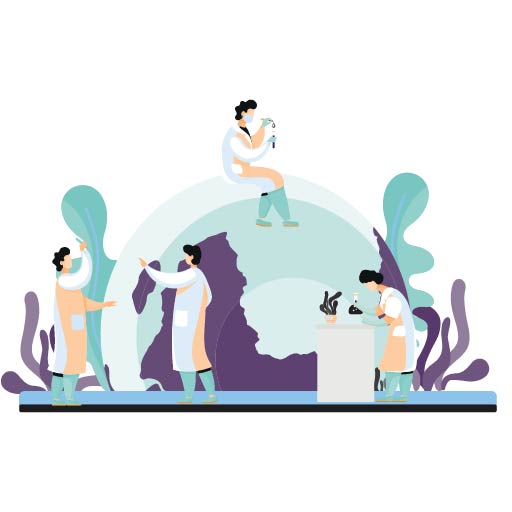University of Montreal
About the University of Montreal
Université de Montréal, established in 1878, is a prestigious institution in Quebec. Our multicultural community thrives in Montreal’s vibrant setting. We advance knowledge, foster innovation, and address global challenges.

A brief history
The University of Montreal is a publicly funded French-language institution situated in Montreal, Quebec, Canada. Its origins date back to 1878 when it was established as a branch of Université Laval in Quebec City, initially known as the Université de Laval à Montréal. In 1919, it received a papal charter and in 1920, it gained autonomy as an independent university through a provincial charter. Throughout its history, the university has evolved into a respected institution serving the local community and providing higher education. In 1942, it relocated from Montreal’s Quartier Latin to its current location on Mount Royal. In 1967, it transitioned into a secular institution with the enactment of another provincial charter.
General information
The Université de Montréal is a publicly funded French-language research university situated in Montreal, Quebec, Canada. Its establishment traces back to 1878 when it was originally founded as a branch of Université Laval in Quebec City and was initially known as the Université de Laval à Montréal. In 1920, it gained autonomy as an independent institution after being granted a provincial charter. Furthermore, in 1967, it transitioned into a secular institution. The university comprises thirteen faculties, encompassing more than sixty departments, and has two affiliated schools: Polytechnique Montréal, specializing in engineering education, and HEC Montréal, a prominent business school. It offers an extensive array of academic programs, including over 650 undergraduate and graduate programs, with 71 doctoral programs in the mix. The university provides instruction across a diverse spectrum of fields, covering arts and sciences, education, law, medicine, theology, architecture, social work, criminology, and more. Affiliated with the university are two renowned institutions: Polytechnique Montréal, dedicated to engineering education, and HEC Montréal, focusing on business studies. Over the years, the university and its affiliated schools have nurtured and produced notable alumni, including figures like Pierre Elliott Trudeau, Bernard Landry, Louise Arbour, Michaëlle Jean, and Denys Arcand. The Université de Montréal is recognized as one of Canada’s leading research universities, contributing significantly to research efforts. Globally, it holds the 111th position and ranks 6th in the French-speaking world in terms of academic excellence and research impact.


Quick facts about Kyoto
- The university has over 66,000 students, including 45,000 undergraduate students and 11,000 graduate students.
- The university has over 2,500 professors and researchers.
- The university has a large campus located on the slopes of Mount Royal, covering an area of 2.5 square kilometers.
- The university is a member of the Association of Universities and Colleges of Canada and the Association of Francophone Universities.
- The university has a strong focus on research and is one of Canada’s top universities by volume of research.
- The university has a large library system, with over 6 million volumes and 30,000 electronic journals.
- The university has a strong commitment to sustainability and has implemented several initiatives to reduce its environmental impact, including a bike-sharing program and a green roof on one of its buildings.
- The university has a diverse student body, with students from over 150 countries.
- The university has a strong sports program, with over 20 varsity teams and several intramural sports leagues.
- The university has a vibrant student life, with over 250 student organizations and clubs.
Download our Successful College Application Guide
Our Guide is written by counselors from Cambridge University for colleges like MIT and other Ivy League colleges.
To join our college counseling program, call at +918825012255

FAQs
To be eligible for admission to undergraduate programs, one must have a score of 3.0 on the scale of 4.3 or 82%. A GPA of 3.3 out of 4.3 is required for admission to graduate programs. Additionally, proficiency in French is an important component in order to secure admission as all undergraduate programs at the University of Montreal are taught in French.
The University of Montreal admissions are moderately competitive with a 57% acceptance rate.
The application fee for the University of Montreal is 112.50 CAD (6,709 INR) .
Applicants are expected to consult the application and document submission deadlines which apply according to their educational background and program choice(s). Some programs may remain open past the application deadline, but note that priority will be given to applications that are submitted on time.
Yes, proficiency in French is an important component in order to secure admission as all undergraduate programs at the University of Montreal are taught in French. However, the CS DIRO department of the University of Montreal is an exception and no French exam is required for admission
- To apply for on-campus residence at the University of Toronto, students must first confirm their interest in residence by submitting the first-year residence application on the StarRez Portal by March 31, 2023.
- The application process varies slightly for different students, and residence application support is available to help students navigate the process.
Popular Courses

Bachelor of Science in Computer Science
This program provides students with a solid foundation in computer science, including programming, algorithms, data structures, software engineering, and computer systems. Students will learn how to design and develop software applications, analyze and solve problems, and work collaboratively on projects.

Master of Business Administration (MBA)
This program is designed for students who want to develop their management and leadership skills and gain a deeper understanding of business operations. The curriculum covers topics such as accounting, finance, marketing, operations management, and organizational behavior.

Bachelor of Arts in Psychology
This program provides students with a broad understanding of human behavior and mental processes. Students will learn about topics such as personality, social psychology, abnormal psychology, and cognitive psychology. They will also gain practical experience through research projects and internships.

Bachelor of Science in Nursing
This program prepares students for a career in nursing by providing them with the knowledge and skills needed to provide high-quality patient care. The curriculum covers topics such as anatomy and physiology, pharmacology, health assessment, and nursing interventions.

Bachelor of Laws (LLB)
This program is designed for students who want to pursue a career in law. The curriculum covers topics such as legal theory, contracts, torts, criminal law, and constitutional law. Students will also gain practical experience through internships and moot court competitions.

Master of Science in Environmental Science
This program is designed for students who want to study the environment and the impact of human activities on natural systems. The curriculum covers topics such as ecology, environmental chemistry, environmental policy, and sustainability. Students will also gain practical experience through research projects and internships.
Find the Japan university that best suits you!
Use Tychr Japan University Admissions Calculator to generate a list of recommended universities that are the best fit for you.
Eligibility Criteria
- GPA: 3.5
- IB Score: 33
- Percentage: 75%
- IELTS Score: 6.5
- TOEFL Score: 104
- SAT Score: 1400
- ACT Score: 33
- GMAT Score: 570
Fee Structure
Tuition fees for undergraduate programs at the University of Montreal vary depending on the program of study.
- For the 2023-2024 academic year, the tuition fee for a full-time undergraduate student is CAD 3,742.80 per semester, or CAD 7,485.60 per year.

Admission Deadlines
- Fall Intake: The application deadline for the Fall intake is February 1, 2023. The admission period for international applicants ends several weeks before the session begins. Foreign students must allow for 3 to 6 months to complete all the formalities required to study in Canada. If these formalities are not completed in time, students will have to file a new application at a later date.
- Winter Intake: The application deadline for the Winter intake is September 1, 2023. Most January entry colleges in Canada 2024 will have a November deadline. Some may go as late as mid-November, but students should always check the university’s deadlines for January 2024 on their websites.
- Summer Intake: The application deadline for the Summer intake is February 1, 2023.
Notable alumni









